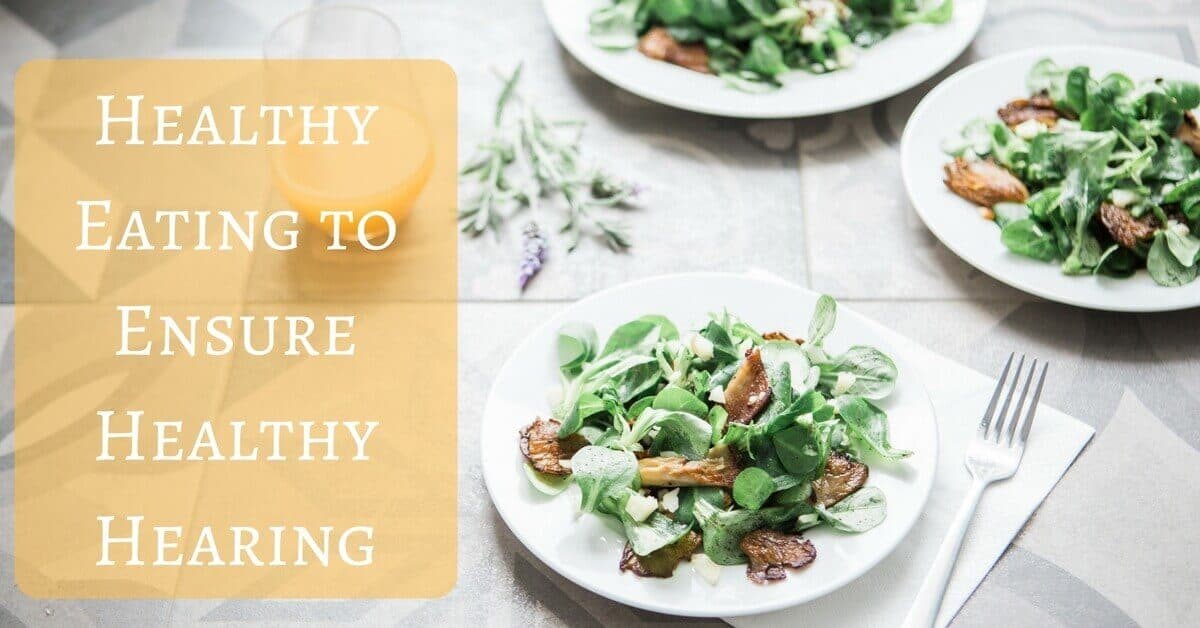The Relationship between Food and Health
Common knowledge dictates that what we put in our bodies determines our heath. If one only eats junk food then one isn’t receiving essential nutrition and vitamins to be stay healthy. Proper nutrition helps one be alert, have a strong immune system, maintain weight, boost mood and slow or prevent the development of disease. Nutrition, both good and bad, can also affect one’s hearing.
How Does Food Affect Hearing?
Sometimes we unintentionally separate hearing health from the rest of our body. Dr. Joe McDermott, Director of Audiology for Colorado West Otolaryngologists believes that hearing is related to the body’s overall health. Food and nutrients consumed may have a significant impact on one’s hearing health. Therefore, eating healthy doesn’t only affect the body’s healthy but it also benefits one’s ears. There are certain foods that can promote hearing health, protect your ears and reduce the possibility of developing hearing loss.
Omega-3 Fatty Acids
Omega-3 fatty acids are one of the best nutrients for your hearing. Their anti-inflammatory properties help strengthen the body’s blood vessels, ensuring that every organ and body part is receiving oxygen and nutrients. This includes the blood vessels in the ear and delicate inner ear. When your ears are getting enough nutrients and oxygen, they stay healthy and in turn support your hearing health.
Consuming at least two servings of Omega-3 rich foods per week will help to potentially reduce presbycusis by 42% (compared to those who do not). Foods containing Omega-3 fatty acids include fish like salmon, tuna, mackerel and sardines as well as nuts and seeds like chia seeds, walnuts and flaxseed.
Antioxidants
Antioxidants have always been lauded as important dietary necessities. It’s been found that folic acid is particularly beneficial to the ears. It specifically helps reduce the molecules that can damage the body’s cells, also known as free radicals. For adults over the age of 50, those who have a folate deficiency are 35% more likely to develop hearing loss. Folic acid can be found in leafy greens like spinach and romaine lettuce as well as beans, nuts and peas.
Vitamins and Minerals
Now there’s another reason for one to eat more vegetables and fruits—for one’s hearing. Vitamins and minerals found in fruits and vegetables are essential for keeping our ears healthy. Here’s how vitamins help hearing:
–Vitamin B12: boosts blood flow and the production of red blood cells, both of which are good for the ears. This can be found in meat, eggs and dairy foods.
– Vitamin C: helps the immune system keeping our ears from getting infected. Many citrus fruits like oranges and grapefruits as well as vegetables like bell peppers are high in vitamin C.
–Vitamin D: helps the tissues and delicate bones in the ear stay strong. This can be found in fish and milk.
–Vitamin E: keeps one’s circulation healthy. That’s another reason to eat nuts like peanuts and almonds.
–Zinc: can help protect against age-related hearing loss. Also, coincidentally, is found in dark chocolate. If you have a love for chocolate, specifically dark chocolate, you’re in luck!
–Magnesium: has been discovered to help prevent noise-induced hearing loss. Foods like bananas, artichokes, broccoli and potatoes are great sources of magnesium.
So, that’s some food for thought! Many of these items are easy to find in your local grocery store or market. Next time you go shopping, pick up a few extra foods with Omega-3 fatty acids, vitamins, minerals and antioxidants. Making sure one is getting the proper nutrients can protect one’s health and hearing.
My Hearing Centers
Our friendly team is looking forward to hearing from you. With locations in 9 states, there is sure to be a center near you.
(888) 230-0875


